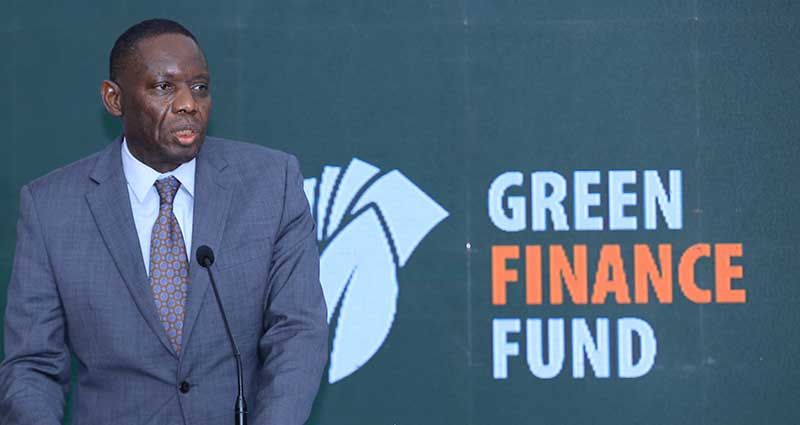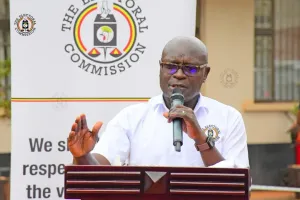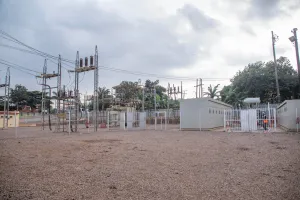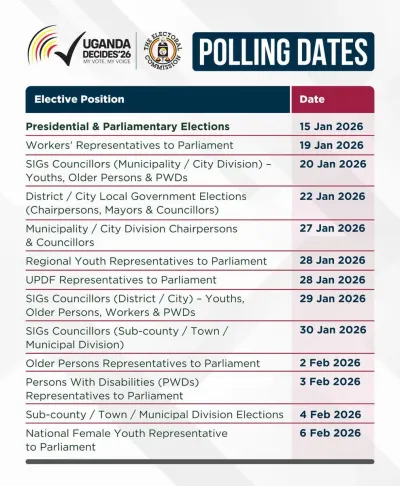
The Central Bank has asked players in the financial services sector to review their business model by incorporating initiatives that address economic challenges in order to create value for the communities they serve.
The Deputy governor bank of Uganda Dr. Michael Atingi-Ego says that starting next year the central bank is focusing on institutionalizing an environmental social and governance framework across all the regulated banks.
Launching the aBi Green Finance Fund, Dr. Atingi-Ego says the Bank of Uganda strategic initiative is to ensure that the commercial banks prioritize social good and sustainability in addition to making profits for shareholders.
“We are working at institutionalising environmental, social and good governance (ESG) principles in our operations and across the regulated financial institutions for a sustainable financial sector, characterised by business models that foster economic growth and development, while ensuring that we do no harm to the environment in which we operate. Institutionalizing ESG practices aligns our institutions with IFRS (International Financing Reporting Standards) climate risk and sustainability-related disclosures”-Dr.Atingi Ego
He adds that for the commercial banks to achieve this goal they must holistically embed environmental sustainability in their core business strategies.
Atingi-Ego called on the financial services actors to utilize this green finance fund and green agribusiness taxonomy to build and extend affordable and user friendly green financial products and solutions to all Ugandans.
“This fund and taxonomy is going to foster a vibrant green finance ecosystem by harnessing technology and innovation to build markets and solutions for transitioning to a climate resilient and low-carbon future. For example, green finance for investing in climate resilience practices such as growing early maturing seed, will enable farmers to harvest early, sell early and repay their loans in time hence improving the performance of loan portfolios for their financial institutions. We urge all financial services sector and agribusiness sector actors to pursue green investments that are adapted to or mitigate climate change and conserve biodiversity,” said the Deputy Governor.
He further explains that the Bank of Uganda is to integrate climate change risk management in basic supervision as well as the monetary policy framework since the weather vagaries affect price stability and the economy in general.
Mona Muguma, the Chief Executive Office aBi Finance Limited says that now with this Green Finance Fund, Commercial banks and other financial institutions have an opportunity to access over 120 billion shillings to lend to small holder farmers as a way of promoting the sustainable growth and resilience of the agriculture sector.
Muguma says small holder will now be able to access cheap credit not only to address climate change adaptation, mitigation and biodiversity conservation but also contribute to economic growth, job creation and improve incomes
She says that a green taxonomy which is a list or manual has been designed and it highlights investment options that are environmentally sustainable and those that aren’t.
She adds that for sustainability purposes, the Green Finance Fund will take advantage of the already established systems and structures of partnering financial institutions.
Muguma adds that managing climate change requires those tasked with governance of the institutions to appreciate the climate change threats to business and start to act immediately.
In addition to availing the resources, capacity building for the institutions is paramount as Muguma explains the three green finance instruments under the fund.
She notes that the Green Finance Fund is a blend of three green finance instruments including; Green Lines of Credit worth Ugx.120 billion, Capacity building worth Ush 4 billion and Green Agribusiness Guarantees.
“Once governance is aligned, then commit resources to develop and institutionalise clear Environmental and Socially inclusive policies, frameworks, products, build capacity (for staff, systems and infrastructure) and pursue partnerships to enable climate adaptation, mitigation and biodiversity conservation investments.”-Muguma















Solomon Lubambula
Leave a Comment
Your email address will not be published.